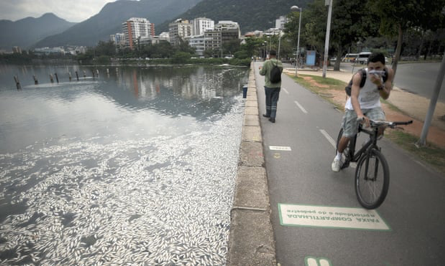By Vanessa Bade
If you know anything about me, you know I love to call myself an environmentalist and I take pride in the eco-friendly decisions I make on a daily. I always opt for oat milk and avoid fast fashion like it is the devil (which, indeed, it is). And I constantly lecture my parents on the importance of their shopping decisions, to a point at which I am probably not welcome in my own home anymore. But recently, I have been confronted with the harrowing notion that perhaps I am wasting my time (and those extra 50 cents on plant milk) in my efforts to live up to the role of conscious consumer.
A responsible citizen is constantly encouraged to vote with their dollar. Faced with a variety of choices each day, we are nudged towards those that will do less damage to the planet by our general social environment (and by sustainable lifestyle bloggers advocating all the best sustainable cosmetic brands we can buy to save the planet). Many brands understand our desire to be seen (and to see ourselves) in a flattering light, capitalizing on this and greenwashing their goods. This phenomenon reflects the reason we are experiencing an environmental crisis in the first place: “all the systems, the market, the institutions, everything is calibrated to maximize consumption” [1]. Although the market for eco-friendly products is huge, it is not large enough to make any substantial dent in traditional consumption and thus, does not have an impact on our system as a whole. We continue to consume way too much for any of our small, environmentally-friendly decisions to really make an impact. When you opt for the toxin-free nail-polish or the locally sourced produce and carry out those “well-meaning signals that you care about the environment“ [2], you may be giving your social profile and ego a bit of a boost, but the “action itself makes no difference”[3].
Alden Wicker, in his article “Conscious Consumerism is a Lie”, argues that the money we spend on the typically more expensive eco-friendly alternative of a product would be better invested in pursuits that effect change on a larger scale. Alternatively, he suggests donating to non-profit organizations that attempt to effect policy change. So, all we have to do is spend our money in a different way? Sounds easy enough. But it isn’t really that simple.
The small changes that environmental organizations can affect still happen within the system as a whole; even if we change one aspect, there are multiple others still working against it in a system geared towards profit and growth at any cost. “There is ultimately a clash in the wider scheme of things, even if you have one sector of a capitalist market that responds to people’s concerns about the environment”[4].Many current economists and thinkers emphasize that it is time for us to think outside of the box and outside of the current structure in place. There are a variety of different suggestions for a system that is “democratic, decentralized and avoids concentrations of wealth and power while promoting environmentally sustainable economies”[5]. Eco-capitalism, for example, is centered around a market-based approach that provides economic incentives for pollution reduction, while eco-socialism, an even more radical structural alternative, advocates policies emphasizing non-monetary criteria, such as “social needs, individual well-being and ecological equilibrium”[6]. Instead of spending our time at the store, deciding between detergent brands, or browsing the web for the most efficient non-profit to donate to, we should be considering realistic alternatives to the system and the priorities we have in place. Although it seems daunting to have to rethink our entire world-view, I guess it is somewhat reassuring to know that not everything can be decided with our wallets and that our minds matter too.
Vanessa Bade, Class of 2019, is a Literature and Religion Major from Frankfurt, Germany
Sources:
Image Source: www.theguardian.com
[1]Engels, Friedrich. Dialectics of nature / Friedrich Engels ; (Translated from the German by C. Druttj Progress Publishers Moscow 1954
[2]Wicker, Alden. “Conscious Consumerism Is a Lie. Here´s a Better Way to Help Save the World.”Quartz, Quartz, 7 Mar. 2017, qz.com/920561/conscious-consumerism-is-a-lie-heres-a-better-way-to-help-save-the-world/.
[3]Ibid.
[4]Engels, Friedrich. Dialectics of nature / Friedrich Engels ; (Translated from the German by C. Druttj Progress Publishers Moscow 1954
[5]Wall, Derek. Realist utopias? Green alternatives to capitalism. Environmental Politics. Vol. 16, Issue 3. 2007
[6]Great Transition Initiative, www.greattransition.org/publication/why-ecosocialism-red-green-future.

